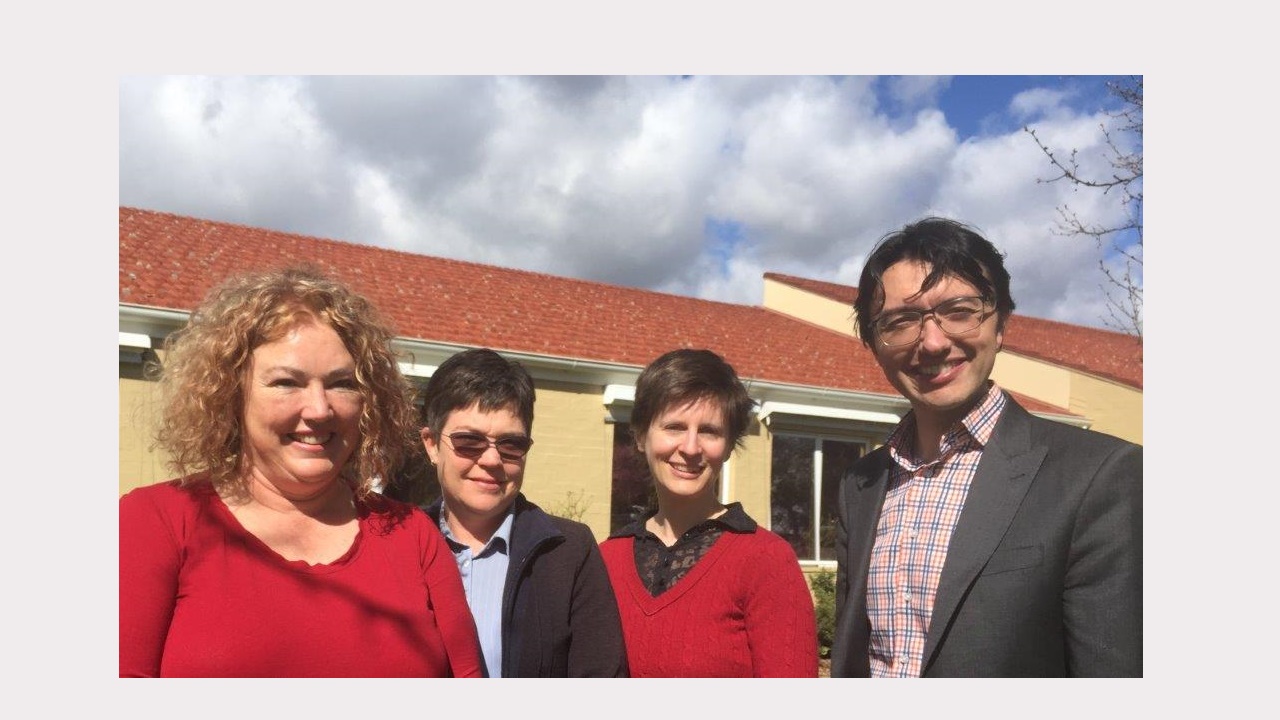Study highlights value in aged care residents having access to specialist palliative care
Study highlights value in aged care residents having access to specialist palliative care
by Heather Wiseman
Friday, August 26, 2016
Providing proactive specialist palliative care in residential aged care facilities has shown significant benefits in an Australian pilot study which has achieved international interest.
The research, published in the latest issue of BMJ Supportive & Palliative Care, trialled a new approach to providing specialist palliative care in four residential aged care facilities in Canberra.
Clare Holland House palliative care nurse practitioner Nikki Johnston was involved in the pilot study, visiting four Canberra facilities each month to conduct a palliative care needs round. During the round staff identified residents who were likely to die within the following six months. Case conferences were attended by these residents, their family and GP, and staff. Goals of care were discussed and documented in advance care plans.
This approach contrasts with current practice, as specialist palliative care services are generally called after a resident has started experiencing end-of-life symptoms.
The intervention reduced the length of residents’ hospital stays and the number of deaths that occurred in hospital. This resulted in better outcomes for residents and their families, and saved the health system $115,539 over three months.
“Rather than getting referrals for dying people in distress, we have switched it around, so that we get to know the residents and families earlier."
“For residents with palliative care needs who are not dying, avoiding hospitalisation remains an important outcome,” the study said.
“Hospitalisation does not necessarily improve symptom management or quality of life, and adds burden to family members.”
Ms Johnston told Palliative Matters that during the pilot, GPs and facility staff learned how to run an effective case conference to improve end-of-life decision making. Having a specialist nursing round that focussed on palliative care enabled them to better diagnose dying and identify residents with the greatest palliative care needs. They could then actively plan and prepare for the specific symptoms each resident was likely to experience at the end of life.
She said this represented a “very different way of working”.
“We’re not reacting to a situation, we are planning for a situation, and that means we have a plan in place for when we need it,” Ms Johnston said.
“Rather than getting referrals for dying people in distress, we have switched it around, so that we get to know the residents and families earlier.
“The staff are better able to identify the residents who may need our care, so they are diagnosing dying a lot better. The staff also have increased capacity to care for residents who have palliative care needs”
In most instances, Ms Johnston or the resident’s GP prescribed medication six months before the resident’s anticipated death, based on the symptoms they were likely to experience.
“It is evident in the data that having someone who could prescribe anticipatory medications was really valuable,” she said.
“The nursing home had all the medication ready to go. The plan was in place on how to use it so if it was needed at 3am on a Sunday morning it was there and the nurses knew how to administer it.”
Through the pilot Ms Johnston also worked with aged care facilities to establish a stock of end-of-life medications in order to reduce delays in symptom control. End-of-life medicine packs were introduced in facilities where registered nursing staff had the required training, confidence and judgement to use them.
Ms Johnston said the proactive model showed benefits for residents, staff and the broader community.
“The residents get better care at end of life and the families feel more supported.
“The staff in the residential aged care facility feel empowered which is a big thing because they are a disempowered group. It is very hard work and it is rare they’re told they are doing a good job. Increasing their confidence and capability helps them to get more out of their work and hopefully that means less staff turnover, because we really need staff with good palliative care skills working in residential aged care.
“From a government point of view it reduces avoidable hospital admissions and it did save money. It is win, win.”
Ms Johnston said she and the study’s other authors were aiming to extend the pilot with a randomised control trial involving 12 sites across Canberra.
“We hope we’d get the same results and then that it would become usual care in Canberra, but we would need funding to run the trial,” she said.
“Ultimately, we would like everyone across Australia to have access to this model. That would rely substantially on GPs and palliative care nurse practitioners, who could fill an enormous gap in residential aged care.”
The study’s other co-authors were geriatrician and palliative care specialist Dr Michael Chapman, clinical nurse consultant in palliative care Clare Lovell, professor of palliative care Dr Liz Forbat and economist Wai-Man Liu.
Ms Johnston said specialist palliative care service manager Jane Etchells, and Calvary Health Care, played a significant role in supporting the research.
